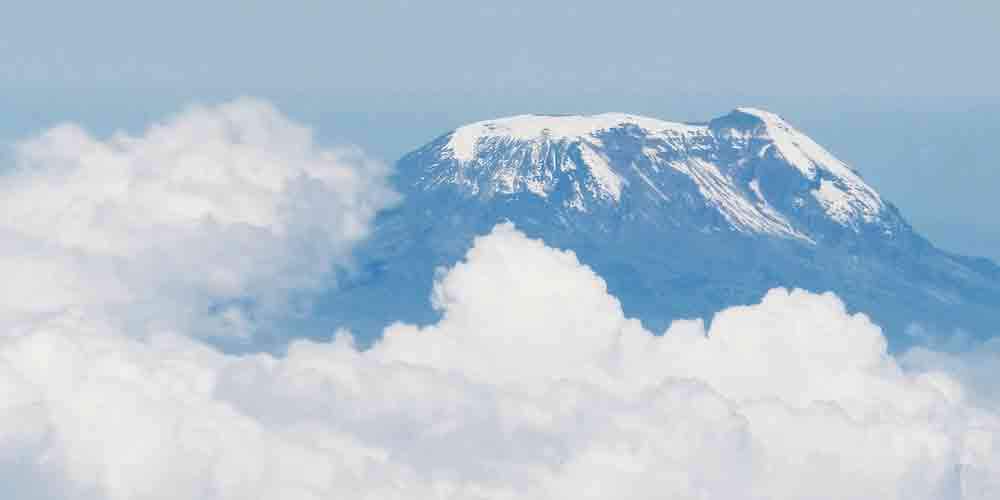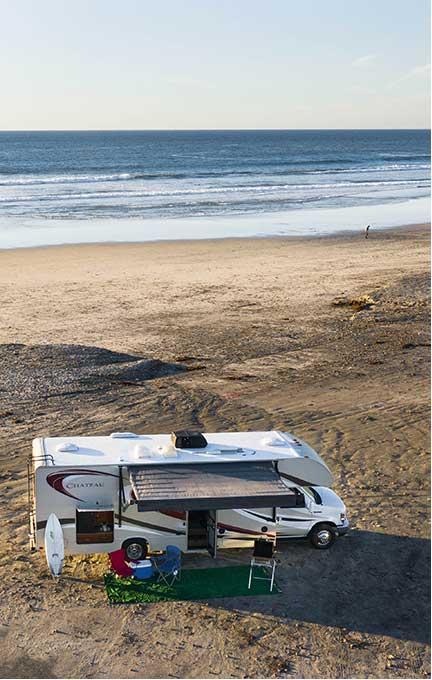As night fell on Mount Kilimanjaro, Kara Richardson Whitely lay in her tent, exhausted but satisfied with her efforts on the trail that day. She was feeling good and looking forward to the next day on the trail. Then she heard the porters sitting outside laughing at her, mocking her weight and taking bets on whether or not she would reach the summit.
As they considered Kara’s 300-plus pound frame, most bet she would not make it. Whiteley wished she was anywhere else.
Her first instinct was to hide her feelings and turn to food for comfort, but an inner voice told her “not this time.” She fought the impulse to quit her hike and in the morning she calmly confronted the guide and porters.
“I heard you,” she told them. “Did you place any money bets? You should. Bet on me.” Those who did went home richer, because Whitely reached the summit of Mount Kilimanjaro. It was her second time looking out over Africa from its highest peak.
 Waiting for someday
Waiting for someday
Whitely grew up in Canada and Vermont, where being outdoors was a natural part of her childhood. In her new book, The Weight of Being, she describes a season of her childhood as “a Little House on the Prairie kind of existence.”
But as her relationship with food grew more complicated and the number on the scale climbed steadily higher due to a binge eating disorder, she found herself engaging less and less in outdoor activities. She flipped through the glossy pages of adventure magazines and believed the illusion that enjoying the outdoors was reserved for the thin and fit. She browsed the outdoor gear in the sporting goods stores without finding anything—even socks—that fit her. She told herself she would return to the outdoors someday, once she had lost the weight.
 On her 30th birthday, she decided she had waited long enough. She wasn’t getting any younger and she was finished waiting until she lost weight to feel free to live her life. She decided to return to the activities she used to enjoy. She decided to go hiking.
On her 30th birthday, she decided she had waited long enough. She wasn’t getting any younger and she was finished waiting until she lost weight to feel free to live her life. She decided to return to the activities she used to enjoy. She decided to go hiking.
When she stopped pushing hiking and an active lifestyle away—a future reward, she thought, for when she chose to get healthy—Whitely discovered that time on the trail could play a big role in her journey to health, both physically and psychologically.
Breaking the cycle
Whitely was just nine years old the first time she binged. Her parents were divorcing and one day she hid in the pantry as they argued. Surrounded by food, she found that chewing helped drown out the sound of their voices and numb her painful feelings.
She learned that food could be a place of refuge. A few years later, at the age of twelve, she was sexually assaulted. Lacking other coping skills, she turned to the one she had learned in the pantry that day: binge eating.
As she started to gain weight, other kids began to torment her for her appearance—a pain that only led to more binging. She was quickly trapped in a negative cycle and didn’t know how to break free.
 Beginning to hike again at 30, however slowly, was a small start to freedom. Whitely made other lifestyle adjustments and was able to lose more than 100 pounds. She and her husband set their sights on the highest mountain in the world that could be reached by foot without any technical climbing: Mount Kilimanjaro.
Beginning to hike again at 30, however slowly, was a small start to freedom. Whitely made other lifestyle adjustments and was able to lose more than 100 pounds. She and her husband set their sights on the highest mountain in the world that could be reached by foot without any technical climbing: Mount Kilimanjaro.
Losing so much weight and training for Mount Kilimanjaro as a “plus-sized hiker” drew a lot of attention, which made her uncomfortable, so they chose to divert the attention to raise money for Global Alliance for Africa to help AIDS orphans, and their Mount Kilimanjaro expedition became a charity hike.
By the time they had reached the summit, the couple had raised $12,000.
Failing to reach the summit
 Whitely had accomplished so much. She lost a lot of weight, got in better shape, and hiked to the summit of Mount Kilimanjaro. But without addressing the root of her eating disorder, she was not yet truly healthy.
Whitely had accomplished so much. She lost a lot of weight, got in better shape, and hiked to the summit of Mount Kilimanjaro. But without addressing the root of her eating disorder, she was not yet truly healthy.
The transition to motherhood sent her back to binging to cope with her feelings and she gained much of the weight back. In an effort to return to the mountain top, literally and figuratively, she returned to Kilimanjaro.
This time she was not well prepared. She had not trained, and she had packed the gear from her previous trip, most of which no longer fit. With nothing to wear, she was forced to hire a tailor to combine her two pairs of hiking pants into one. Finding herself at the base of Kilimanjaro so ill-equipped for the challenge ahead led her to binge the night before the hike began. She did not reach the summit.
A deeper healing

The missing ingredient was seeking treatment for her binge eating disorder. She has had help to learn skills to deal with life’s difficulties and pain, which the nine- and twelve-year-old Kara never had the chance to learn. She knows now that while she thought food was saving her, it was actually consuming her.
Whitely is now learning to accept herself—at any weight. The way she chose to demonstrate that acceptance, to herself and others, was to return to Mount Kilimanjaro and hike to the summit, without waiting for radical weight loss first. It was on this third trip that the porters who mocked and bet against her lost their money.
Standing at the summit, weighing more than 300 pounds, Whitely changed a lot of people’s minds about what is possible.
After the successful summit, she returned to her home in New Jersey and wrote her first book, Gorge: My Journey Up Kilimanjaro at 300 Pounds.
Out of the shadows
Mountaintop experiences are amazing, but most of Whitley’s life is lived at lower altitudes. In between peaks, she works as a writer and professional speaker and enjoys family life with her husband and three children.
Although she’s in recovery, her eating disorder remains a part of her life, and naturally her struggles have impacted her family. Her latest book, The Weight of Being, dives deeper into this impact and her eventual decision to have weight-loss surgery after a pivotal conversation with her daughter’s doctor.
 Whitely hopes to help others who are living in the shadows of a binge eating disorder, which thrives on secrecy and shame. Her openness and vulnerability are a helpful part of her own recovery.
Whitely hopes to help others who are living in the shadows of a binge eating disorder, which thrives on secrecy and shame. Her openness and vulnerability are a helpful part of her own recovery.
Hiking and time spent outdoors continue to be an important part of seeking health and wellness. Being out on the trail helps her feel connected to her surroundings, open to beauty, and aware of her senses. Binging is about being numb, but hiking is about being present in the moment and open to feelings.
Whitely continues to hike regularly, whether on a favorite local trail or stealing away for an hour in the redwoods in the midst of business travel. Her next big hiking challenge awaits her on the Hawaiian island of Molokai this November.
A hike is a compelling metaphor for the journey of recovery. The trail may lead to breathtaking beauty, but it can only be reached by walking through steep valleys. It can be a long, uphill climb, but the reward is great for those who are willing to do the work and continue forward, one step at a time.
You can connect with Kara Richardson Whitely through her website and on Instagram.








